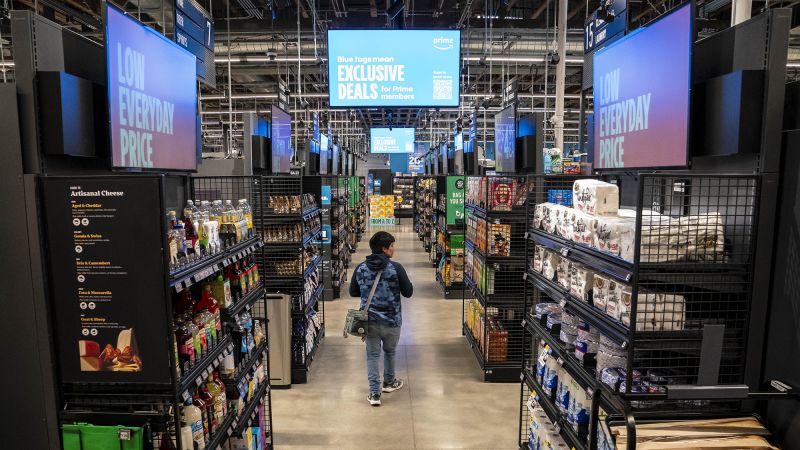Inflation in the US appears to be cooling down, with big-box retailers like Walmart, Target, and Amazon Fresh lowering prices on thousands of items. Recent economic data also suggests a slowdown in inflation, with the latest Consumer Price Index report showing prices rising at a slower rate. However, Americans remain skeptical about the sustainability of this downward trajectory, with consumer confidence in the economy still wavering.
Despite strong indicators like record-high stock prices, robust corporate earnings, and low unemployment rates, Americans are feeling the pinch of rising home prices, high mortgage rates, and elevated grocery prices. Even high-income consumers are starting to cut back on spending, indicating a broader concern about the economy’s health. Inflation concerns are also rising among investors, with inflation emerging as a primary concern for many.
The Federal Reserve will release its latest Personal Consumption Expenditures index, a key inflation gauge, to provide further insights into inflation trends. While some Fed officials have expressed confidence that inflation is moderating, others like Minneapolis Federal Reserve President Neel Kashkari are cautious and believe that more time is needed to assess the situation. The debate over potential rate hikes or cuts in response to inflation continues among Fed officials.
Senate Majority Leader Chuck Schumer and several Democratic senators have called on the Justice Department to investigate Big Oil for alleged collusion and price fixing. The lawmakers expressed concerns about recent allegations of oil tycoons conspiring to inflate oil and gasoline prices, leading to increased costs for consumers. The push for an industry-wide investigation reflects growing scrutiny of Big Oil’s practices and their impact on fuel prices.
A new zero-percent down mortgage program launched by United Wholesale Mortgage has made homeownership more accessible for many Americans who cannot afford a traditional down payment. However, some experts warn that these loans could backfire, especially if home prices decline. The program allows buyers to pay for 97% of the home’s value with a first mortgage and provides the remaining 3% as a second mortgage, to be paid back in full when the home is sold. This initiative has raised concerns reminiscent of the subprime mortgage crisis that led to the 2008 financial crisis.


